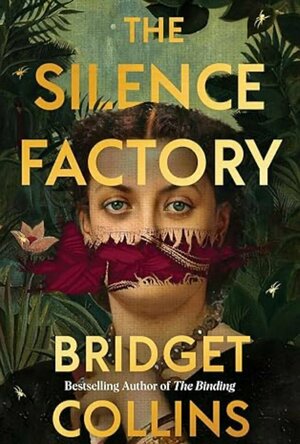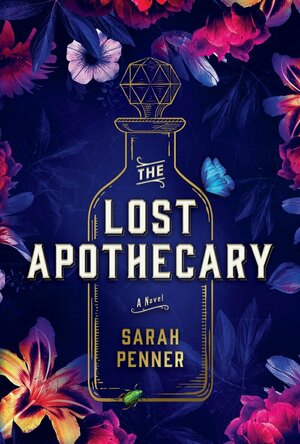ClareR (6096 KP) rated The Glutton in Books
Dec 20, 2023
The Glutton by A. K. Blakemore is based on the real life story of Tarare, a man born into poverty but happy with that life. That is until his mother meets the man who changes her life, presumably for the better - and changes Tarare’s life for the worst.
He’s known as the man who ate a golden fork (that eventually kills him), live animals, offal, a baby - but still people want to watch him put away vast amounts of food (and non-food!). And if it means he’s fed, Tarare sees it as a way of satiating the ever-present hunger. The draw of the circus freak is overwhelming for the French public.
Tarare is a simple man who is taken advantage of at every turn. I felt so sorry for him. He has the disadvantage of not only being very unusual, but also uneducated and poor. He has to fight to survive, both as a soldier and as a civilian, and he’s seen as a joke by the more well-off.
For such a grotesque subject matter, the writing really is rather beautiful. Descriptions of Tarare’s childhood and the place that he grew up were sensitively done - you could see the love of his local area and the love he felt for his mother. Even in the most disgusting sections of the book, there was a kind of beauty.
A deliciously bizarre, beautifully written book. I loved it.
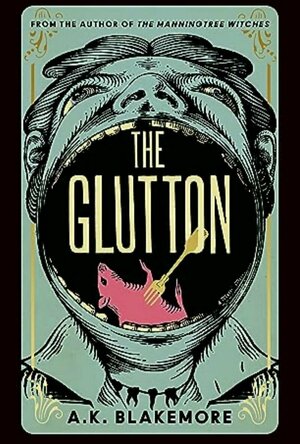
The Glutton
Book
One man with an insatiable hunger: a novel of desire and destruction in Revolutionary France, based...
Historical fiction France
ClareR (6096 KP) rated The Silence Factory in Books
Jul 16, 2024
A factory in Telverton seems to have acquired a particular breed of spider whose web, when spun into a silken fabric, can bring silence to the person/ people sitting inside. However, if the fabric is the other way round, it produces sounds that can make people go mad (they don’t make too much of that fact). So, no the best factory to work in, then!
I enjoyed the two timelines: the discovery of the spiders in 1820, told through the journals of Sophia Ashmore-Percy; and the manufacture of the silk in a factory town decades later along with an audiologist who goes to work for Sir Edward Ashmore-Percy. He has the task of helping Sir Ashmore-Percy’s deaf daughter to hear.
I love how Bridget Collins mixes historical fiction and fantasy, and makes it all seem perfectly reasonable. There’s a lot to be said in this story about taking advantage of people for profit (in the factory in particular) and how nature can be used for man’s own ends, regardless of the consequences. Humans aren’t painted in the best of light, and I actually felt sorry for the spiders 🕷️🕷️🕷️
Still don’t like spiders though.
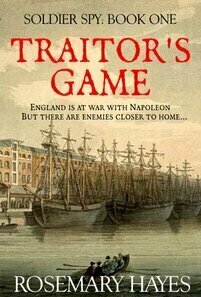
Traitor's Game (Soldier Spy #1)
Book
1808. Captain Will Fraser has just returned from the Front in the Peninsular War. He is disgraced...
Historical Fiction Spies Napoleonic Wars

Covered in Flour: 1968: A Young Boy's Perspective on School, Family, and Changing Times
Book
It's 1968 in Whisper Haven, and 8-year-old Carl Pozzi's world is about to change. For...
Biographical Historical Fiction
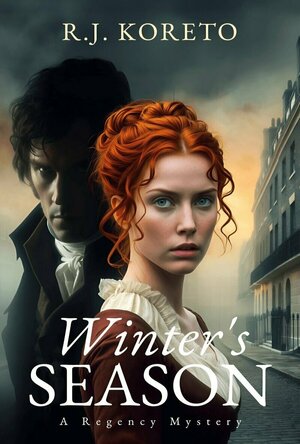
Winter's Season
Book
London, 1817: a city glittering with wealth and rotting with secrets. In the uneasy years after...
Historical Crime Politics Romance Thriller
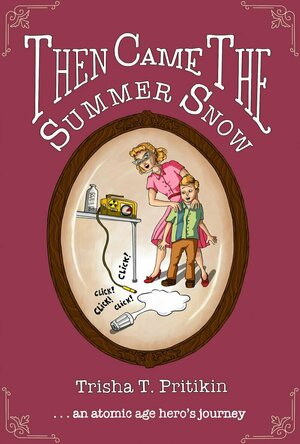
Then Came The Summer Snow
Book
Edith Higgenbothum is a 1950s housewife and mother in the “atomic town” of Richland, Washington....
Historical Fiction Dark Humour Atomic Feminism
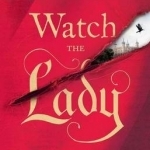
Watch the Lady
Book
The Queen's God Daughter. Her Most Trusted Maid. Adultress. Enemy Of The State. Who is The Real...
Melanie Caldicott (6 KP) rated The Lost Apothecary in Books
Apr 29, 2021
The Lost Apothecary by Sarah Penner is a novel which switches between the storylines of a female apothecary in the 1790s who sells poisons to women to kill men who have wronged them and the present day, in which Caroline happens upon a clue which leads her to investigate the apothecary’s story.
Well, the idea of an apothecary dispensing poison for women to use for murder was enticing to say the least. This book had the potential to weave a thought-provoking, adventurous tale, developing themes about womanhood, oppression and doing evil for good. Sadly, for me it did not quite meet the mark.
The narratives switch between three characters, Caroline, our present-day historian, Nella, the apothecary, and Eliza, a servant girl who becomes friends with Nella over the course of the book.
As I said, I was expecting this novel to grapple with challenging themes, which could have been very emotive and dark. Yet, it turned out to be just a bland bit of light fiction never dwelling on anything for too long, skimming over the surface of most of the characters, their motives and their reactions and lacking depth on any of the parallel-running plotlines.
It is surprising how a book surrounding multiple murders, historical medicine and herbalism and women trapped in marriages with infidels, letches and rapists could be quite so vanilla. It was a pleasant enough read, but lacked the substance I was hoping for.
I found Nella, the apothecary to be a bit of an enigma. We do learn about her back story and gain some insight into her motives for dispensing the poisons. However, for a woman who was resourceful enough to construct the whole clandestine operation we meet her in a weakened state and I grew frustrated with how she seemed to fall into an oblivious kind of dream-like manner becoming swept along by circumstance with no clear influence on the events or people around her.
Eliza, was a naïve girl who met Nella whilst running an errand for her mistress. It is not really clear why the friendship between Nella and Eliza develops, it seems to be more for the convenience of the plot than due to real concrete reasoning. However, an intimacy develops between them which has the potential to bring new colour to the characters. But yet again, Penner seems to skim the surface of going to any depths and I was left feeling robbed of any insight into the emotional and kindred aspects of their friendship.
Finally, Caroline’s story in the present day brought a different perspective to the themes of womanhood running through this book. She parallels the wronged women of the 18th century by escaping to London on a trip she was supposed to take with her husband to celebrate their tenth wedding anniversary, but was instead travelling alone having discovered her husband had been having an affair.
I initially enjoyed Caroline’s historical investigations as they took her to The British Library and researching documents and newspapers there. As an avid genealogist I appreciated the details Penner gives about the sources of Caroline’s research and the challenges of finding the truth from historical documents.
Yet, again her story became somewhat contrived. It seemed unlikely that she would make some of the discoveries she did and her investigation became constructed around coincidence and unrealistic serendipity. Even the parallel storylines surrounding her relationship and those from the apothecary’s timeline seemed somewhat silly and phoney.
For me, the conclusion of the book yet again did not fully reconcile itself and therefore left me unmoved and feeling somewhat apathetic about the ending and the novel as a whole.
Bookapotamus (289 KP) rated No Less Days in Books
May 29, 2018
The premise of this story is really cool. I admit, it reminded me of that Blake Lively move, Age of Adeline, but WAY better. There was thought here, and it drew me in the second I started reading.
The main focus of the story is that David Galloway cannot die. It should have happened, many times. But nope. Still here... 100 some odd years later and still looking every bit a healthy 35 year old man. We learn a lot of David's history, as well as his present situation, and we wonder: How did he become this way? Are there others like him? Will he ever die? How does he live live without ever aging?
I read this book really fast as I honestly wanted to find out what would happen. Page after page, it kept me riveted. I would give it 5 Stars, but I had some issues with parts of the story. Particularly all the themes going on - some felt really unnecessary. There was a lot of mystery, racial stuff, domestic abuse, love stories, historical references, religion, murders, celebrity, books.... I'm probably missing more. I felt like too much was happening and a lot could be toned down or eliminated. And it's very obviously set up for a sequel, but the way this "strange character" just showed up and then left... felt really disjointed and out of place.
I'm also not a big Speculative Fiction reader as well as the Christian Fiction genre. I would have never bought this book and read it on my own. But that is how you lose certain generalizations about things, and find some of the best stories. I took a chance, and I won :)
I'm happy to have read this book. And I'm pretty sure this is a sequel in the works, and I'll most likely seek that one out to read!
